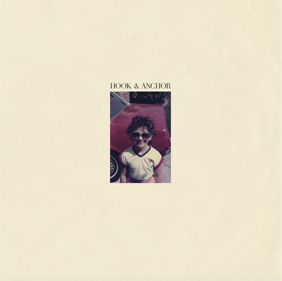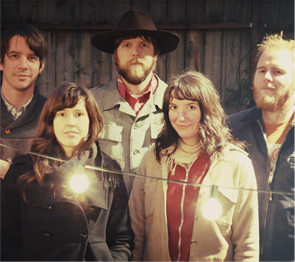In January, I listen almost exclusively to the Grateful Dead. Not just this past January; for many Januaries, going back years. I listen to them at other times of year, as well—a month or so ago, in fact, a long drive was soundtracked by a show from August 1982 (nice versions of ”It Must Have Been the Roses” and ”Althea.” I sang along with much enthusiasm). But there’s something about my head space in cold winter months, a cranial cavity that can only properly be filled with Weir and Garcia and Lesh and Pigpen and Donna Jean and Brent and the others.
 And it’s the voices that hook me and reel me in. The voices. Of all things. For those of you who don’t know, none of the people I’ve just mentioned can sing all that well (including me, in the car, a month or so ago). Jerry Garcia’s voice trembled like a stoned warbler; Donna Jean Godchaux quite often caterwauled like she was trying to hear her own echo at the mouth of a great cave; Phil Lesh looks like a dour math professor, and also sings like one; and Bob Weir and Brent Mydland sounded like they were perpetually passing two feet of hard fecal matter. Only Pigpen (given name: Ron McKernan, though no one called him that) possessed a passable rockish/bluesish voice, in a garage band-kinda way. He died in 1973, though, meaning there is considerably more post-Pigpen material than there is Pigpen material.
And it’s the voices that hook me and reel me in. The voices. Of all things. For those of you who don’t know, none of the people I’ve just mentioned can sing all that well (including me, in the car, a month or so ago). Jerry Garcia’s voice trembled like a stoned warbler; Donna Jean Godchaux quite often caterwauled like she was trying to hear her own echo at the mouth of a great cave; Phil Lesh looks like a dour math professor, and also sings like one; and Bob Weir and Brent Mydland sounded like they were perpetually passing two feet of hard fecal matter. Only Pigpen (given name: Ron McKernan, though no one called him that) possessed a passable rockish/bluesish voice, in a garage band-kinda way. He died in 1973, though, meaning there is considerably more post-Pigpen material than there is Pigpen material.
When the temperatures drop to single digits and the ground turns filthy with whiteness and the tree branches bend low with remnants of the previous evening’s frozen atmospheric excretions (that happened a lot this past winter; it was a mess), I am inexplicably open to the unsteady voices that ring out and harmonize, with varying degrees of confidence, through the endless supply of Dead concert recordings. Perhaps their unsteady nature mirrors my mindset in winter, when we’re arguably at our most vulnerable to the forces of nature; when the season requires the most out of us in terms of both physical strength (try moving a foot of wet snow from where it fell to somewhere else) and patience (try moving wet snow every couple days, for months), and in addressing our fears (dealing with wet snow every couple days, for months, while living in an old home not really built to take that kind of maltreatment). Comfort can come from odd places, perhaps none odder than a muddy 1977 ”Franklin’s Tower,” played with spirit but little precision, voices scattered thither and yon on the harmonic scale. Rolling away, indeed.
So, yeah, my January listening belongs to the Dead. And I mention this because I have spent the entirety of my listening time more recently with a different voice—that of one Kati Claborn.
Claborn is the primary singer in Hook & Anchor, a Portland, Oregon-based countrygrassfolkrockicana collective formed from ex-members of several bands I’ve never heard of (Blind Pilot, County, The New Five Cents), though if I were a Portlander, I might be better informed. Hook & Anchor remind me of another likewise constituted band of their genre—my beloved Truth & Salvage Co.—where unheralded, acoustically inclined virtuosi are drawn together as if magnetized and voices are raised in harmony and instruments are picked and strummed and great songs are written and played.
While T&S’ four voices take turns breaking your heart, Hook & Anchor is largely about fitting arrangements and complementary vocals around Claborn. If you do yourself a favor and listen to the band’s self-titled debut (out July 22, on Jealous Butcher/Woodphone), you’ll instantly recognize something familiar about her voice, something in her timbre or delivery you won’t be able to put your finger on. If you’re into music of the twangy persuasion, particularly the modern twang of the last 20 or 30 years, you’ve heard a boatload of voices you’ve enjoyed, perhaps some you’ve even loved, but, if you’re open to the possibility, this voice will positively cut through you.
 And it will do so with great skill and versatility, across songs that run the gamut from uptempo rock with lap steel accents (”Famously Easy”) to contemplative reassurances of ”It’s gonna be all right” (”No, It’s Not”), spiked with spooky percussion and organ. There are, of course, out-and-out country songs, and Claborn raises her voice as confidently as have Southern chanteuses of recent and older vintages. A song like ”Concerning Spectral Pinching” hits its stride when the tempo speeds up and Claborn breathes sweet air into the high notes, suspending them above the fray as the organized commotion clatters below in the mix. The fiddle drives the boozy shuffle of ”Light of the Moon” but that voice dances alongside it and doesn’t back away, elevating a song and style we’ve all heard in many guises, many times before.
And it will do so with great skill and versatility, across songs that run the gamut from uptempo rock with lap steel accents (”Famously Easy”) to contemplative reassurances of ”It’s gonna be all right” (”No, It’s Not”), spiked with spooky percussion and organ. There are, of course, out-and-out country songs, and Claborn raises her voice as confidently as have Southern chanteuses of recent and older vintages. A song like ”Concerning Spectral Pinching” hits its stride when the tempo speeds up and Claborn breathes sweet air into the high notes, suspending them above the fray as the organized commotion clatters below in the mix. The fiddle drives the boozy shuffle of ”Light of the Moon” but that voice dances alongside it and doesn’t back away, elevating a song and style we’ve all heard in many guises, many times before.
(Oh, and far be it from me to tell you in which format you should purchase your music, but if you go with the digital variety on this one, you get a bonus track, ”Rock Salt and Nails,” which features a Claborn vocal that will rattle your windows and give you shivers for the next three days. Just a thought.)
There are other voices in Hook & Anchor. Gabrielle Macrae gives us ”Hard Times,” a pleasant acoustic paean to simple pleasures and having ”a little bit more than nothing to lose.” Better still is ”Hammer,” with lead vocal by Erik Clampitt, with its churchy harmonies and gospel piano. Lyrically, it’s a well-worn trope, fed by the old John Henry myth, but here given a more universal, emotional resonance. It’s a highlight of the record, and makes me interested in hearing more from Clampitt.
Hook & Anchor is as good an Americountryrockoustigrass record as I’ve heard yet this year. You should try some of it, then buy it and listen to it a lot. For a while, it may be all you want to hear.





Comments